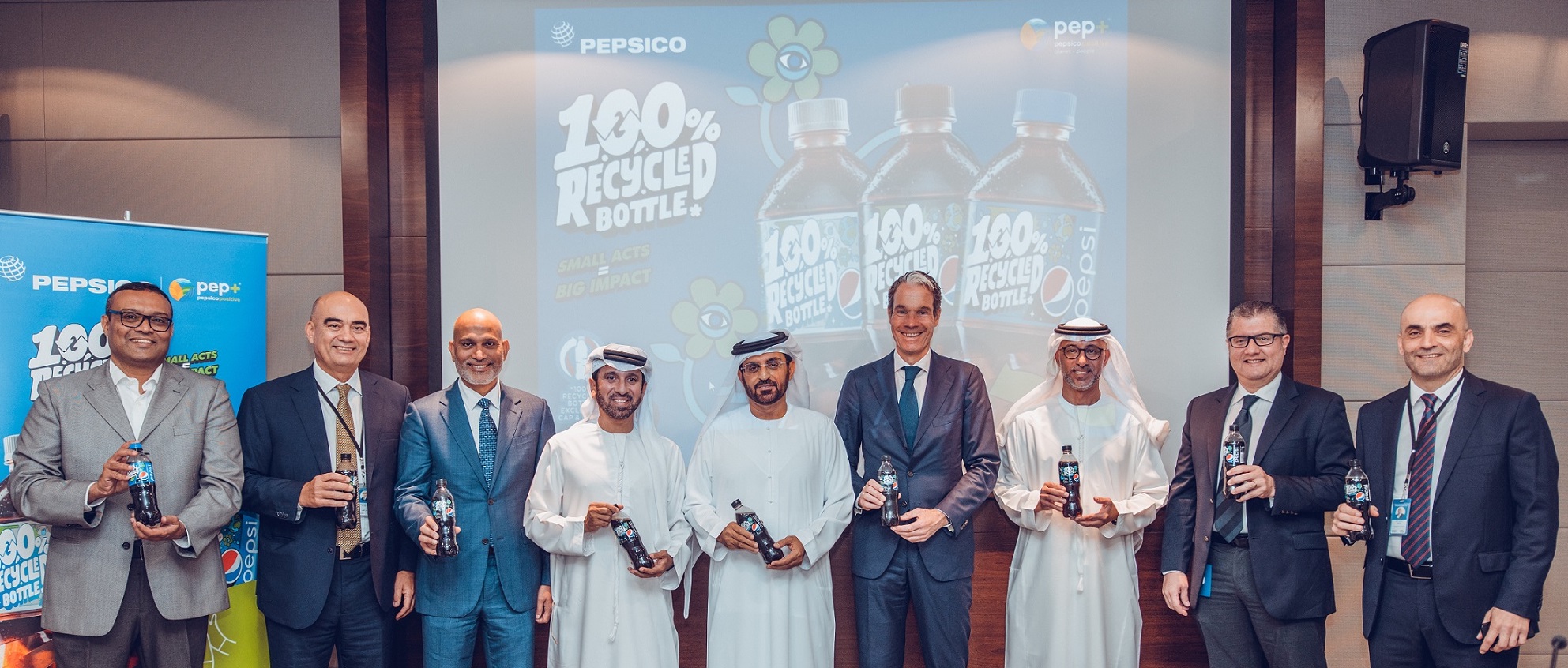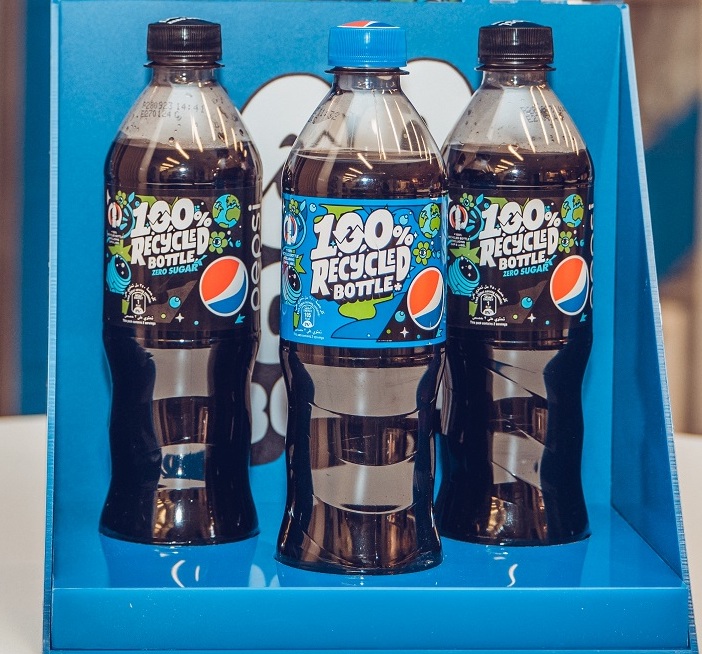
PepsiCo has introduced 100 percent recycled plastic bottles for Pepsi, Diet Pepsi, and Pepsi Zero in the UAE.
The food and beverage brand is paving the way for the integration of fully recycled, locally produced packaging in the carbonated soft drinks category, ahead of COP28.
The new bottles generate over 30 per cent less greenhouse gas emissions compared to traditional PET bottles, a key step in combating climate change and aiding COP28’s efforts to reduce global emissions.
The bottles, excluding the cap and label, are produced from recycled, reprocessed, and repurposed plastic and meet globally certified standards of quality and safety.
PepsiCo is also an active partner across the plastics value chain in the UAE, collaborating with various stakeholders to innovate packaging solutions, enhance recycling infrastructure, and foster consumer education about recycling and sustainable alternatives, in addition to advocating for progressive regulatory reforms.

Aamer Sheikh, CEO of PepsiCo Middle East, said, “More consumers are considering sustainable product options – conscious of environmental impact when deciding what to buy.
“Improved access to recycling infrastructure and ongoing consumer education plays an important role in shaping positive behavior, and we will continue to prioritise efforts across these areas simultaneously to boost recycling rates as we inch closer to COP28 later this year.”
Ahmad Bin Eisa Alserkal, Chairman of Dubai Refreshment PJSC, said, “As the exclusive bottler and distributor of PepsiCo beverages in Dubai, Sharjah, and the Northern Emirates, we’re proud to lead the way in producing fully recycled packaging for CSDs.
“The UAE is taking important steps towards a more sustainable future, and we’re committed to being an equally contributing partner in this journey alongside PepsiCo. Providing more choice enables more positive decisions, and we encourage consumers to opt for the sustainable packaging, paving a greener path for future generations.
As part of the company’s pep+ (PepsiCo Positive) strategy launched in 2021, the company aims to achieve net-zero emissions across its value chain by 2040 and reduce virgin plastic usage by 50 per cent across its global food and beverage portfolio by 2030.









